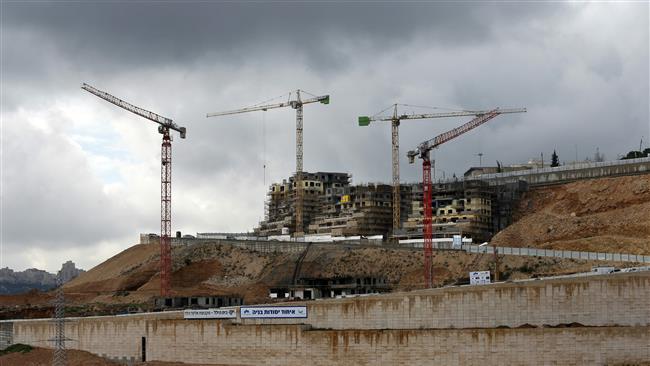
RNA - Meir Turjeman, the deputy mayor of Jerusalem al-Quds, who also heads the so-called Jerusalem District Zoning Committee, said officials had approved plans to construct 566 new Israeli settler units in the occupied territories, AFP reported on Sunday.
The new approvals came despite a UNSC resolution in December last year condemning all Israeli settlement construction on occupied Palestinian territories. The landmark Resolution 2334, passed on December 23, 2016, called Israeli settlements in the West Bank and East Jerusalem al-Quds a “flagrant violation of international law.” The resolution also demanded that Israel stop all such construction.
Over half a million Israelis live in more than 230 illegal settlements built in the occupied Palestinian territories, including East Jerusalem al-Quds since 1967.
The presence and continued expansion of Israeli settlements in occupied Palestine has created a major obstacle to efforts to establish peace in the Middle East.
The ratification at the UNSC of Resolution 2334 came about with the refusal of the United States to veto it, a practice it had long employed against anti-Israeli resolutions at the world body.
Israeli Prime Minister Benjamin Netanyahu accused the US of having conspired with Palestinians to have the resolution passed, a rare accusation that was rejected by Washington.
The approval of the new settlements is seen as a scolding directed at the Security Council.
847/940